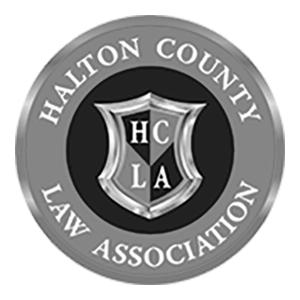
Section 320.13 of the Criminal Code of Canada covers a charge of Dangerous Driving (Dangerous Operation).
A Dangerous Driving (dangerous operation) conviction can have a serious impact on your life; a conviction creates a criminal record, there are automatic driving licence suspensions, insurance premium increases, and potential immigration consequences. Call Daley, Byers for a free consultation regarding your particular situation. We can help!
What the crown needs to prove – Elements of the offence
- 320.13(1) “Everyone commits an offence who operates a conveyance in a manner that, having regard to all the circumstances, is dangerous to the public.”
There are numerous components to the charge of Dangerous Driving.
1. All circumstances must be considered including
- Nature of the place of occurrence;
- Condition of the place of occurrence;
- Use of the place of occurrence;
- The amount of traffic that is or might reasonably be expected to be present
2. There must be a danger to the public who were present or who might have been expected to be present. (Note: A passenger in a car is considered a member of the public.)
3. There must be intent to operate the vehicle in a way that, viewed objectively, constitutes a marked departure from the standard of care expected of a prudent driver in the circumstance.

The legal definition as to what constitutes dangerous operation (dangers driving) has been stated in a number of different ways by the Courts including:
- Operation (driving) in a manner that involves a significant or marked departure from the standard of a reasonably prudent person. A mere departure or negligence is not enough.
- Dangerous operation (dangerous driving) is not the same as failing to exercise the standard of care of a prudent driver.
- Dangerous operation (dangerous driving) is not a momentary lack of attention or negligence.
- The operation (driving) must be more than just carelessness.
Although the words set out the test, the application of the test is often difficult to predict. There appears to be a continuum as to the level of bad driving from 1-10 (1 being the least dangerous and 10 being the highest level of dangerous) and depending on where the Judge lands on that continuum will determine whether the charge of the dangerous operation (dangerous driving) is made out.
For example, failing to come to a complete stop at a stop sign can possibly result in 3 different levels of charges.
- Disobey stop signs. 136(1) Highway Traffic Act
- Careless driving s. 130 Highway Traffic Act
- Dangerous operation (dangerous driving) s. 320.13 Criminal Code
What charge the Police chose to lay will depend upon the facts. It has been our experience that the facts are often overstated or exaggerated by police. It is also very clear that if there is an accident involved the Police are more likely to lay the most serious charge available to them.
Oftentimes the police will lay more than one charge. We have successfully defended several cases where our clients have been charged with stunt driving and dangerous driving at the same time.
We have also successfully defended many cases involving both impaired operation (impaired driving) and dangerous operation.
Penalties if Convicted of Dangerous Driving (for a first time offender)
- Possible absolute or conditional discharge that does not create a criminal record
- Criminal record (if convicted as opposed to receiving a discharge)
- An automatic one-year licence suspension.
- Possibility of jail – depending on nature of the driving
- Fine
- Probation
- Substantive insurance rate increase for at least 5 years
- Potential immigration consequences (see below)
Penalties for subsequent offenders will be more significant.
Importance of the Right to Remain Silent
When a person is being investigated for a charge of Dangerous Driving it is important to exercise the right to remain silent. Often times where there exists aberrant driving or an accident, the best evidence against a person is their own statement made to the police. Every person has the right to remain silent. In most cases of Dangerous Driving this right should be exercised.
However, should a statement be made, all is not lost. The Supreme Court of Canada has held that where an accused person has provided a statement to the police pursuant to his obligations to report an accident under the Highway Traffic Act, the statement is inadmissible and a violation of s. 7 of the Canadian Charter of Rights and Freedoms. R. v. White, [1999] 2 S.C.R. 417
Furthermore, statements can be excluded for lack of rights to counsel, or if provided because of coercion, promise or threat.
At Daley, Byers we take every measure to defend these cases diligently. We will drive the route taken by our client. We use video and still pictures in the presentation of our defence. Witnesses are interviewed in advance of trial and prepared to present their evidence. No stone is left unturned.
ROAD SCIENCE EXPERTISE
Ken Byers, a founding partner, majored in physics prior to entering law school. This science background provides a significant advantage when attacking the police evidence relating to their observations.
Accident reconstruction is often used by the Police to explain what happened and it is as much a guessing game as it is anything else. The police analyze the scene after the fact, take measurements and pictures, and then by applying various formulas attempt to re-create the occurrence. This evidence is often open to attack and we have won numerous cases by destroying the accident reconstruction evidence.
Plea Bargain: Reduction to a lesser offence
Various charges exist regarding safety with respect to the operation of a motor vehicle. There exists a continuum from the minor traffic offence to the more significant traffic violation of Careless Driving and finally to the criminal charge of Dangerous Driving.
In many cases there exists an overlap between what constitutes Careless Driving and what constitutes Dangerous Driving. The legal test for Careless Driving is “driving without due care and attention, or without reasonable attention for other persons using the highway.”
Clearly the normal prudent driver (the test for Dangerous Driving) would not operate the vehicle “without due care and attention or without reasonable attention for other person using the highway.” (the test for Careless Driving.)
In many instances, a well prepared presentation to the Crown Attorney can result in a charge of Dangerous Driving (Dangerous Operation) being reduced to a Traffic violation whether it is a minor traffic charge such as “improper lane change” or to the more serious traffic charge of Careless Driving.
DEFENCE STRATEGY
At Daley, Byers we attack a Dangerous Driving charge in a 2 step process.
- Determine if the case can be won. If the answer is yes, we proceed to trial or attempt to negotiate the complete withdrawal of the charge sometimes in exchange for community service hours or the taking of a driving education course. If the Crown is not willing to negotiate we provide our client with a full assessment of the case and seek instructions to proceed to trial.
- If the case is difficult to win, we will, together with our client, prepare a presentation for the Crown, which may include letters of reference, a good driving abstract (if available), proof of employment or enrollment at an education facility, proof a completion of a driving education course or an undertaking to complete such a course and proof of completed community service hours. Using this material, we will negotiate with the Crown for a reduced charge under the Highway Traffic Act, to avoid a criminal record and the automatic suspension of driving licence.
The founding partners, Bruce Daley and Ken Byers each have over 32 years of experience in the Criminal Courts of Ontario. They are familiar with all of the Courts and their participants. This experience is invaluable when negotiating with the Crown.

Dangerous Driving (Dangerous Operation) s. 320.13 Criminal Code
Section 320.13 of the Criminal Code of Canada covers the Dangerous Operation of motor vehicles, vessels(boats) and aircraft.
Careless Driving
Highway Traffic Act. s. 130
Every person is guilty of the offence of driving carelessly who drives a vehicle or street car on a highway without due care and attention or without reasonable consideration for other persons using the highway and on conviction is liable to a fine of not less than $400 and not more than $2,000 or to imprisonment for a term of not more than six months, or to both, and in addition, his or her licence or permit may be suspended for a period of not more than two years.
Penalty for Careless Driving also includes:
- Six (6) demerit points issued by the Ministry of Transportation
- Substantive increase in insurance rates
- 30-day suspension for G1, G2, M1 or M2 licence holder
Immigration Consequences:
There are serious potential immigration consequences when facing a charge of the dangerous operation (dangerous driving).
Dangerous operation of a conveyance (Dangerous driving) carries a maximum penalty of 10 years if the Crown attorney proceeds by way of indictment.
The penalty provisions as stated above are found at s. 320.19(5)
Punishment:
(5) Every person who commits an offence under subsection 320.13(1) … is guilty of (a) an indictable offence and liable to imprisonment for a term of not more than 10 years; or (b) an offence punishable on summary conviction.
Because of the 10 year maximum, dangerous operation falls under the definition of a charge of serious criminality under the Immigration and Refugee Protection Act.
Serious criminality
36(1) A permanent resident or a foreign national is inadmissible on grounds of serious criminality for:
- having been convicted in Canada of an offence under an Act of Parliament punishable by a maximum term of imprisonment of at least 10 years, or of an offence under an Act of Parliament for which a term of imprisonment of more than six months has been imposed;
- having been convicted of an offence outside Canada that, if committed in Canada, would constitute an offence under an Act of Parliament punishable by a maximum term of imprisonment of at least 10 years; or (c) committing an act outside Canada that is an offence in the place where it was committed and that, if committed in Canada, would constitute an offence under an Act of Parliament punishable by a maximum term of imprisonment of at least 10 years.
Criminality
36(2) A foreign national is inadmissible on grounds of criminality for:
(a) having been convicted in Canada of an offence under an Act of Parliament punishable by way of indictment, or of two offences under any Act of Parliament not arising out of a single occurrence;
(b) having been convicted outside Canada of an offence that, if committed in Canada, would constitute an indictable offence under an Act of Parliament, or of two offences not arising out of a single occurrence that, if committed in Canada, would constitute offences under an Act of Parliament;
(c) committing an act outside Canada that is an offence in the place where it was committed and that, if committed in Canada, would constitute an indictable offence under an Act of Parliament; or
(d) committing, on entering Canada, an offence under an Act of Parliament prescribed by regulations.
Application:
36(3) The following provisions govern subsections (1) and (2): (a) an offence that may be prosecuted either summarily or by way of indictment is deemed to be an indictable offence, even if it has been prosecuted summarily;
General Application of the forgoing sections:
Are you inadmissible because of criminal activity? In general, temporary residents and applicants applying for permanent residence are considered to be criminally inadmissible if the person:
- was convicted of an offence in Canada;
- was convicted of an offence outside of Canada that is considered a crime in Canada; or
- committed an act outside of Canada that is considered a crime under the laws of the country where it occurred and would be punishable under Canadian law.
Conclusions re Immigration Consequences:
- As a permanent resident, a conviction and sentence of 6 months or more will generally result in deportation.
- As a permanent resident you are exposed to deportation if convicted of dangerous operation (dangerous driving) as it falls under the definition of serious criminality under s. 36 of the Immigration and Refugee Protection Act. A conditional or absolute discharge avoids this consequence.
- If your immigration status is a work permit or student visa, a conviction will result in your visa not being renewed and subsequent deportation. However. a conditional discharge or an absolute discharge will not trigger the deportation issue under the Immigration Act.
- Refugee Claimant – a refugee claimant who is found guilty of a serious criminal offence will have his refugee claim suspended, be issued a deportation order, and then deported without ever having the substantive merits of his refugee claim heard.
- If convicted under any of the provincial offences, whether it be the Highway Traffic Act or any other Provincial Act there are no immigration consequences.
We have successfully resolved innumerable cases to save our clients from immigration consequences and guarantee them the right to remain in Canada.
In addition to resolving dangerous operation (dangerous driving) cases to preserve the ability to remain in Canada, we have also been able to negotiate resolutions to impaired driving and over 80 (now 80 plus) charges to a charge of dangerous driving with a discharge so that immigration consequences can be avoided. (a discharge is not available in law on an impaired driving, over 80 (80 plus), DUI charge which is why we negotiate the resolution to one of dangerous operation where a discharge is available and immigration consequences avoided). We also have negotiated countless impaired operation/impaired driving, 0ver 80/80 plus charges to a reduced charge of careless driving under the Highway Traffic Act, thus avoiding all immigration consequences.
It goes without saying, that these cases can be life changing and the right to stay in Canada is most important. It is our primary focus whenever we advocate for our clients who face serious potential immigration issues.
VALUE:
A Daley, Byers it is our goal to provide value. We are not the cheapest lawyers, nor are we the most expensive. However, we promise to provide you with an experienced, professional top quality legal defence for a fair price.
Call: 1-855-529-9111 for your free consultation
Why Clients Choose Us?
- High Success Rate
- Experienced: 32+ Years Each Partner
- Fair Payment Plans
- 24/7 Access to Our Team
- Free Consultation
- We Care About Your Case
Areas of practice





